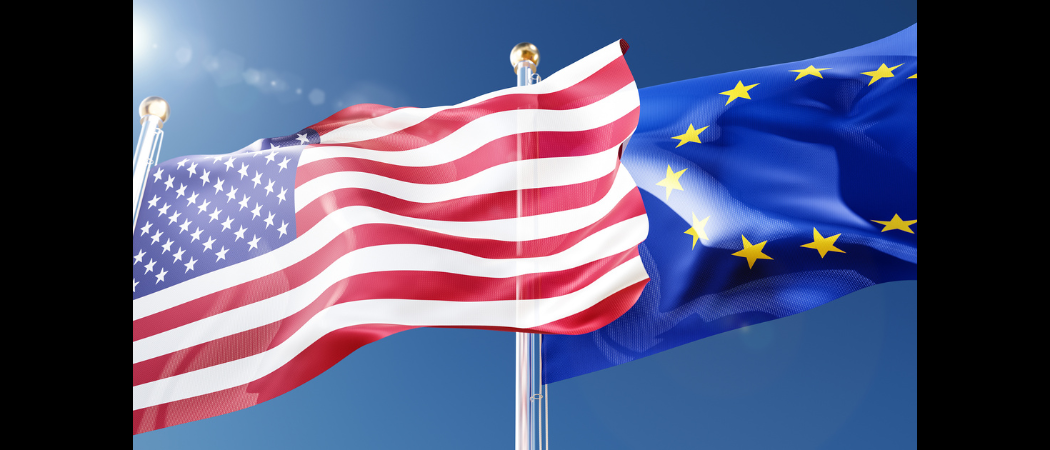Co-funded by Horizon Europe and the US National Science Foundation, the project reflects a wider strategy of deepening transatlantic cooperation on key technologies, to reduce dependence on China. The value of the project was not disclosed

The EU and the US will step up collaboration on the development of 6G wireless communication systems, as Europe seeks to avoid the security risks that the use of Chinese 5G equipment has posed to its 5G networks.
The 6G-XCEL (6G Trans-Continental Edge Learning) project, aiming to embed artificial intelligence to enhance the capabilities of 6G networks, is one of 27 6G research projects announced last week, which have a total of €130 million in EU funding.
The money was awarded through the Smart Networks and Services Joint Undertaking (SNS JU), as part of its second Horizon Europe call, but the amount awarded for 6G-XCEL from either the US or the EU was not disclosed.
The 6G-XCEL project, due to start in January, will involve five universities in the US and four in Europe, working with companies in one or both locations, including IBM. The US National Science Foundation (NSF), will fund groups in the US to work with the European consortium.
According to SNS JU’s timetable, commercial 6G wireless networks will be deployed from 2030. From 2024 – 2026 the detailed design will be drawn up to ensure 6G can support a huge increase in traffic and in the number of connected devices, whilst operating reliably, having strong security and being energy efficient. The 6G-XCEL project will build the foundations for AI to be used to control and manage networks.
Increased connectivity of 6G will come with extra risks, said Dan Kilper, director of Science Foundation Ireland’s CONNECT research centre, which will coordinate the project. “We need to make sure it meets the reliability and security aspects, and that it’s explainable and accountable,” he said.
Kilper insisted China was not a factor when designing the project, saying it is about building on the partners’ strengths rather than starting from a place of weakness.
However, there are growing concerns over the security risks involved in using equipment supplied by Chinese telecoms giant Huawei, one of the leading players in 5G, and now 6G technology. To date 10 EU member states have imposed restrictions on telecoms equipment suppliers that are viewed as security risks, including Huawei.
In August, competition commissioner Margrethe Vestager confirmed that the European Commission will change Horizon Europe rules to reflect Brussels’ assessment that Chinese telecoms giants Huawei and ZTE represent “higher risks than other 5G suppliers”.
Global standards
A key aspect of 6G-XCEL involves working toward standardisation and the creation of a common framework for the global adoption of AI in 6G networks.
“Communication standards these days are global,” Kilper said. “If we can work together to come up with solutions that solve our needs across these two large geopolitical entities, that will help us make a strong standard, and make sure that what we value and the principles we want to see are reflected in it.”
The partnership will also involve workshops and conferences to bring together communities on both sides of the Atlantic. “We will be very public and open about what the project is doing, and inviting people to cooperate from outside the project,” said Kilper.
Common principles
The 6G collaboration is part of a wider strategy of deepening technology cooperation between the US and EU in areas including artificial intelligence, online platforms, and quantum. The US and EU agreed to develop a common vision and industry roadmap on 6G research and development following the most recent ministerial meeting of the Trade and Technology Council in May.
The foundations, sketched out in the 6G outlook, says the vision should be in line with “common principles and values such as sustainability, privacy, accessibility, openness, and inclusiveness”.
This will provide the basis for scaling up R&D cooperation between SNS JU and NSF, to create “critical mass among like-minded partners in global regulatory and standardisation bodies”; and cooperating in technology trials.
In August 2022 the 6G Smart Networks and Services Industry Association, which represents industry on the board of the SNS JU, signed a memorandum of understanding with the Next G Alliance, an industry initiative to advance North American wireless technology leadership. They agreed to share information on work programmes and collaborate on workshops, seminars and trials.
Security concerns
Despite the security concerns that have been raised over the use of Huawei equipment in Europe’s 5G networks, there are 13 Horizon Europe grant agreements involving the company’s European subsidiaries. They include a project selected in the first SNS JU call, in which Huawei’s Düsseldorf subsidiary is participating. No Huawei entities based in China participate in Horizon Europe.
China is likely to lead the world in 6G, according to an analysis by Emily de la Bruyère and Nathan Picarsic, of the consultancy firm Horizon Advisory. They point out that the country has a majority of 6G patents and numerous advantages, including the size of its market and the technological capacity of its companies.
However, they conclude that geopolitical tensions mean this will not translate into complete global dominance. “It is likely the case that future telecommunications networks and trade and investment patterns will turn increasingly bipolar, with one system set by Chinese standards and another by global alternatives,” they say.
The SNS JU call winners also include projects which aim to advance European microelectronics; to transpose 6G technologies into real-world applications in business and industry; and to ensure the technology aligns with societal needs and benefits.
The announcement takes the number of SNS JU-funded projects to 62. The third call for proposals is planned for January 2024.





 A unique international forum for public research organisations and companies to connect their external engagement with strategic interests around their R&D system.
A unique international forum for public research organisations and companies to connect their external engagement with strategic interests around their R&D system.